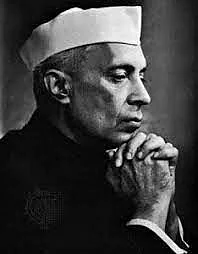Nehru's Word: India must aim for social justice with democracy
We bring to you this week extracts from the second and final part of Jawaharlal Nehru’s letter to the chief ministers, written in the midst of the Korean crisis

We face today a vast and powerful Soviet group of nations, which tends to become a monolithic bloc, not only pursuing a similar internal economic policy but a common foreign policy. That policy is an expansionist one and thus there is a tendency for it to come into conflict with others. It is expansionist not only in the normal political sense but also in encouraging internal trouble in other countries.
We do not like this expansionist policy, external or internal. At the same time, we realise that there are certain factors which help it and unless those internal factors are changed, we cannot effectively meet that challenge.
On the other hand, the approach of the rival group, though democratic in theory, tends more and more to encourage reactionary and military elements in various countries, especially of Asia.
By the logic of events, it supports the relics of colonial rule. In the broad sweep of history, therefore, it becomes, whether it wants to or not, a defender of political and social systems which are out of date.
We want in India, and in other countries, democratic freedom for the nation and the individual and, at the same time, economic advance and social justice. Roughly speaking, the two governing ideas in the world today lay stress on one or the other of these.
Ultimately, of course, there cannot be democratic freedom without social justice and there can be no social justice without democratic freedom. Is it possible for us in India to have both or try to have them? It is an ideal worth striving for and I am sure it is in line with the future development of the world, unless some great catastrophe overwhelms us all.
In South Korea, we see that, in spite of a great deal of help given by the USA, the political and social structure was excessively weak and it has cracked up.
Indeed, from all accounts that we have had, South Korea was governed by as authoritarian a regime as North Korea, though both were entirely different. Numerous impartial observers have given us accounts of the bad state of affairs in South Korea during the past few months.
So, it is difficult to be enthusiastic about South Korea. In Indo-China, we have kept apart from the two contending parties. One of these is supported by the French, and now the USA has promised military support to the French. Formosa, by a decision taken during the later stages of the War, was part of China. But now obstructions have been placed in the way of Formosa going to China.
All this indicates how a certain policy leads inevitably to the support of weak and reactionary elements in Asia. In the long run that policy cannot succeed because Asia, however weak, is wide awake and in a rebellious mood. It is, therefore, not a wise policy and in effect encourages those very elements to which it is opposed.
Europe and America are far too much used to thinking in terms of military or economic power. There is no doubt that we cannot ignore the force of arms or of money. But it has been repeatedly seen in parts of Asia that there are strict limitations to what arms and money can do, if they go against the prevailing mood of millions of people.
India is in a position to understand these Asian problems much better, not only from the political but also from the psychological point of view, and India is also respected by these countries of Asia because we have no particular axe to grind.
Therefore, a heavy responsibility rests upon us to adopt a policy which we consider not only expedient but wise and in keeping with the temper of Asia.
I have tried to explain in press conferences and elsewhere our present policy in regard to the conflict in the Far East. We have given our moral support to the United Nations there and that is a great deal, as the world knows.
It would have made a tremendous difference if we had withheld that support. But we have not sent any armed forces there and we do not intend to send them, so far as I can see. Of course, we are not in a position to send anything that might be called effective.
I realise that, in the circumstances prevailing today, India’s capacity to influence them is strictly limited. Nevertheless, there is a possibility of making a difference and that difference may be between war and peace. Whether people like a particular policy we adopt or not, there is a growing respect for India; and we force people and countries to think a little more clearly than they might otherwise do…
There is no need for us to become excited or hysterical because of the turn events have taken in the Far East. Indeed, this is just the time when we should be calm and collected and be prepared for every contingency. This means that we should try to lessen, as far as possible, our reliance on foreign exports, because we may have to do without them sometime in the future.
In this hard world we have to learn the virtues of austerity and do without anything that is not essential. We may have to produce some substitutes for the things we import. To a large extent, this can be done, if necessity arises.”
(Selected and edited by Mridula Mukherjee, former professor of history at JNU and former director, Nehru Memorial Museum and Library)
Follow us on: Facebook, Twitter, Google News, Instagram
Join our official telegram channel (@nationalherald) and stay updated with the latest headlines